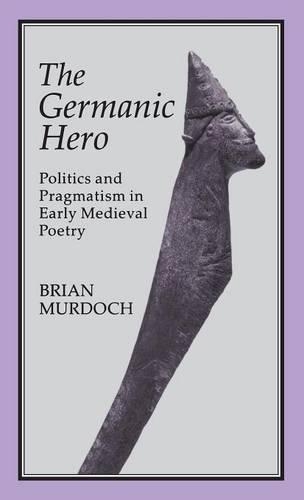
The Germanic Hero: Politics and Pragmatism in Early Medieval Poetry
(Hardback)
Publishing Details
The Germanic Hero: Politics and Pragmatism in Early Medieval Poetry
By (Author) Brian Murdoch
Bloomsbury Publishing PLC
Hambledon Continuum
1st July 1996
United Kingdom
Classifications
Tertiary Education
Non Fiction
Literary studies: ancient, classical and medieval
809.1
Physical Properties
Hardback
188
300g
Description
In this study, the author looks at the role the warrior-hero plays within a set of predetermined political and social constraints. The hero if not a sword-wielding barbarian, bent only upon establishing his own fame; such fame-seekers (including some famous medieval literary figures) might even fall outside the definition of the Germanic hero, the real value of whose deeds are given meaning only within the political construct. Individual prowess is not enough. The hero must conquer the blows of fate because he is committed to the conquest of chaos, and over all to the need for social stability. Even the warrior-hero's concern with his reputation is usually expressed negatively: that the wrong songs are not sung about him. The author discusses works in Old English, Old and Middle High German, Old Norse, Latin and Old French, deliberately going beyond what is normally thought of as "heroic poetry" to include the German so-called "minstrel epic" and a work by a writer who is normally classified as a late medieval chivalric poet, Konrad von Wurzburg, the comparison of which with "Beowulf" allows us to span half a millennium.
Reviews
"He provides the reader with Ariadne's thread through the various ages and stages of Germanic heroic literature." --Choice
